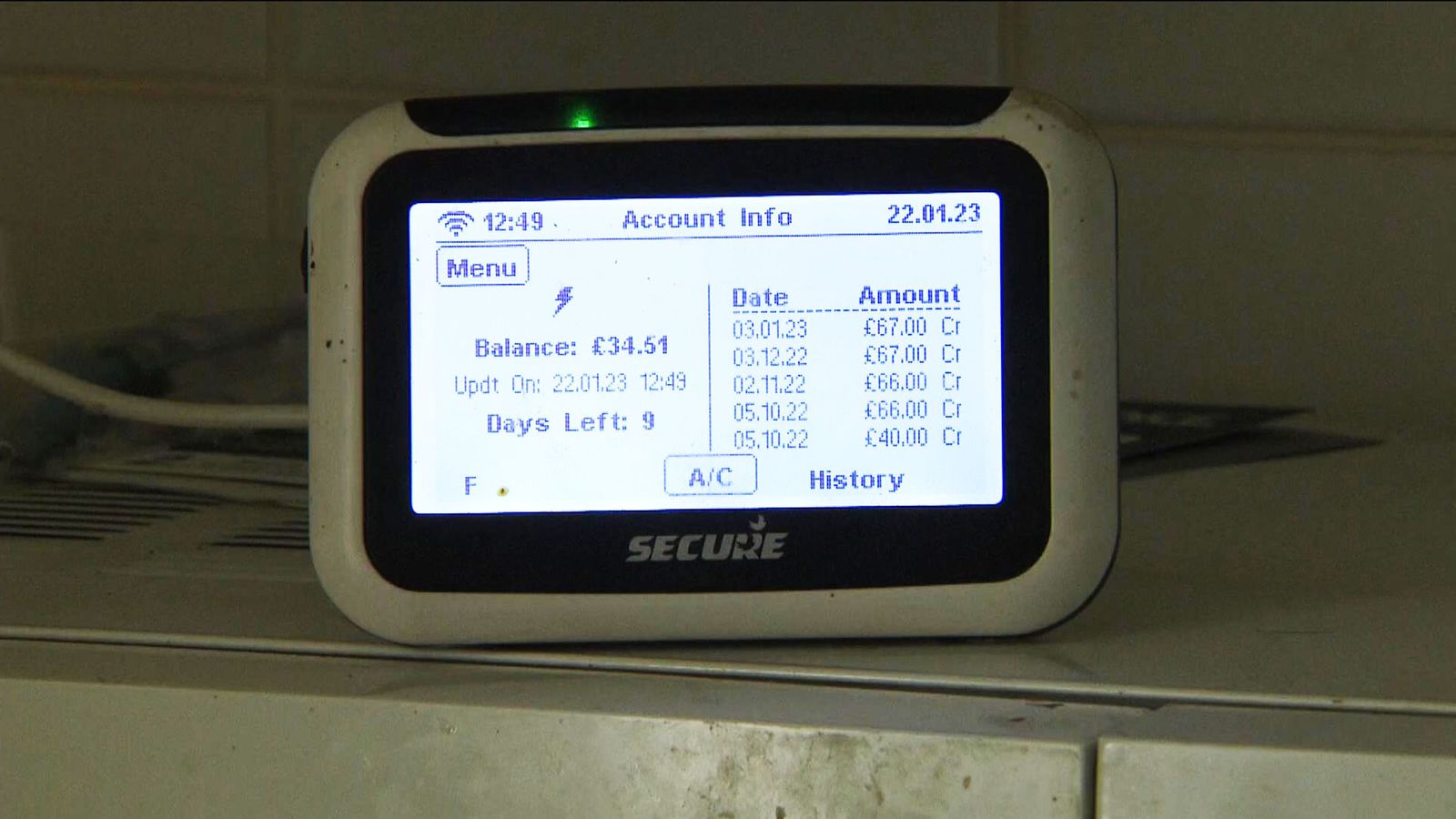Household energy suppliers are facing tougher restrictions on the forced installation of prepayment meters following criticism that curbs failed to help many of the most vulnerable.
Industry regulator Ofgem said it was tightening the no-install rules from 8 November to include people aged over 75 with no support in their house and homes with children aged under 2.
A new code, first announced in April, had initially applied to customers aged 85 and over with no other support in their home or households with residents with severe health issues.
It was a response to an investigation that revealed how debt collectors had forced their way into homes to install prepayment meters.
Please use Chrome browser for a more accessible video player
The practice has been temporarily suspended since February.
Prepayment meters can be installed when a customer is in debt and are pay-as-you-go, meaning power is cut off if payment isn’t made.
Charges for gas and electricity are higher than those paid by households paying by direct debit but the gap is shrinking under regulatory and political pressure.
Economy contracts by worse than expected 0.5% in July, official figures show
Cost of living latest: Amazon signs deal with Iceland; how to get new iPhone cheaper; UK economy ‘could struggle to keep head above water’
Heatwaves and washouts mean the economic weather is fluctuating wildly too
The new price cap level imposed from 1 October will see the average customer with a prepayment meter see their bills fall to £1,949 per year.
Please use Chrome browser for a more accessible video player
That sum is £26 higher that the typical bill faced by those paying via direct debit.
Three million people ran out of credit on their prepaid meter last year, according to Citizens Advice, and more than 94,000 were forcibly installed.
The regulator said it was acting to ensure that more people will be protected this winter.
“Currently, no suppliers are carrying out involuntary installations and will face severe penalties if they do unless they meet strict criteria set by Ofgem,” its statement said.
“When suppliers do so, the new rules – which come into effect on 8 November after a mandatory 56-day notice period – will ensure they are acting in a fair and responsible way with involuntary installations used only as a last resort.”
The regulator’s director of strategy, Neil Kenward, added: “Protecting the most vulnerable consumers is at the heart of what we do, and this decision not only cements the protections Ofgem put in place for people deemed most at risk, it goes further to protect the most vulnerable households.
“Prepayment meters are an important payment method that help millions of households to manage their energy bills. But they are not suitable for everyone.
“Today’s enhanced rules are there to provide protection from bad practice while ensuring that when needed, and as a matter of last resort, suppliers are using involuntary installations in a fair and responsible way.
“Ofgem will be monitoring suppliers’ behaviour closely to ensure they are complying with the spirit and letter of these rules. If that is not the case we will not hesitate to take action.”






















